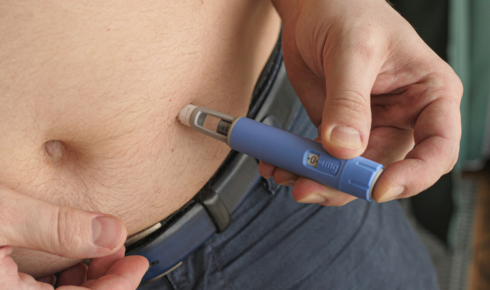There’s something oddly comforting about a fresh start — that quiet promise you make to yourself on a Sunday night, staring at your reflection and thinking, “This time, I mean it.” Whether it’s starting a new gym routine, cutting back on sugar, or finally calling your doctor about weight loss medication, it’s always about more than the number on the scale. It’s about hope.
And for a lot of people lately, that hope has a name: semaglutide. You’ve probably heard of it under brand names like Ozempic or Wegovy — the so-called “miracle shot” that’s taken over social media. But between the hype and the skepticism, one question keeps echoing across Reddit threads, clinics, and coffee chats: when do you start losing weight with semaglutide?
Let’s get into it — without the clinical jargon or miracle claims. Just an honest look at what it really feels like when you’re on this journey.
The Beginning: Expectation Meets Reality
Most people start semaglutide full of cautious optimism. The idea of a weekly injection that helps control appetite feels revolutionary, especially if you’ve spent years fighting cravings and failed diets. The first few weeks, though, can feel anticlimactic. You might not notice much change — maybe a little less interest in food, maybe some mild nausea or fatigue.
That’s normal. In fact, it’s kind of the point. Semaglutide works by slowing digestion and mimicking a hormone that tells your brain you’re full. It’s subtle at first — almost sneaky. The scale doesn’t drop dramatically overnight. Most doctors will tell you the first noticeable weight loss usually happens around the 4- to 6-week mark, once your dosage starts increasing and your body begins to adjust.
That’s when you might suddenly realize you didn’t finish your dinner, or that your cravings for late-night snacks have vanished. And when that happens, it feels less like a diet and more like a quiet shift inside you — a kind of peace you haven’t felt in years.
The Real Secret: Consistency and Self-Kindness
Now, let’s be honest: semaglutide isn’t a shortcut. It’s a tool. A really effective one, sure, but it still requires patience and self-awareness. You’ll have good weeks and slow ones. There’ll be times the scale won’t budge for two weeks straight, and that’s when your mindset matters more than the medication.
The people who do best are the ones who use this window of change to build new habits — smaller portions, more movement, better sleep. They don’t chase perfection. They listen to their bodies, celebrate small wins, and stay curious about what works for them.
That’s the heart of using semaglutide for weight loss — not as a magic cure, but as a reset button. It helps quiet the constant hunger so you can focus on learning how to live differently. For many, it’s not just losing weight; it’s learning how to eat again, how to enjoy food without guilt, and how to feel proud of progress that doesn’t depend on a number.
What Doctors Don’t Always Emphasize
You’ll hear a lot about side effects — nausea, constipation, fatigue. And yes, they can be unpleasant. But what often gets overlooked is the emotional rollercoaster that comes with seeing your body change so quickly. For some, it’s thrilling. For others, it’s complicated.
Weight loss can stir up all sorts of feelings — joy, disbelief, even grief. Old clothes fit again. Friends start noticing. People treat you differently. You catch yourself in the mirror and barely recognize the person looking back. And while that sounds amazing, it can also be disorienting.
That’s why it’s so important to have support — whether it’s a therapist, a nutritionist, or just a friend who understands what you’re going through. Because transformation isn’t just about shrinking; it’s about adjusting to a new way of being seen, both by others and by yourself.
The Cost of Care: Health as an Investment
Of course, none of this comes cheap. Semaglutide can cost hundreds — sometimes over a thousand dollars a month — if insurance doesn’t cover it. That’s a huge barrier for many people who genuinely need it.
This is where clinics and regional health centers come in, offering more affordable programs or assistance plans. In places like texas surgical, for example, some medical weight loss centers have begun combining semaglutide with nutritional counseling and long-term monitoring, helping patients navigate both the physical and emotional aspects of the journey. It’s a more holistic approach — not just prescribing a shot, but guiding a transformation.
Because here’s the truth: health shouldn’t feel like a luxury item. And yet, so often it does. Finding care that feels compassionate and affordable can be its own form of healing.
What “Results” Really Mean
Everyone wants to know the magic number — how much weight can you lose, and how fast? But focusing too hard on the data misses the point. Sure, studies show people can lose 10–15% of their body weight within a year on semaglutide, but the real stories aren’t about pounds. They’re about people rediscovering their energy, their confidence, their ability to walk without pain or climb stairs without losing breath.
That’s what success looks like. The scale is just one piece of it. The rest is how you feel — physically lighter, emotionally steadier, maybe even a little more hopeful.
And if you hit a plateau? That’s part of it too. Your body adjusts. It finds its rhythm. That’s when you pivot — maybe by tweaking your meals, adding strength training, or simply accepting that your worth isn’t tied to your weight chart.
The Human Side of Progress
There’s a quiet beauty in slow change. It teaches patience — something most of us aren’t great at, especially when it comes to our bodies. But watching semaglutide work over time is like watching a sunrise. You don’t notice the light at first; then, little by little, everything brightens.
People often talk about weight loss like it’s just science — calories, hormones, metabolism. But it’s also poetry. It’s about coming back to yourself after years of struggle. And semaglutide, for many, has been that bridge between “I can’t” and “Maybe I can.”





